Keynote Speech 1: Network-Connected Formation and Cooperative Control of Autonomous Systems⇒
By Zhengtao Ding (University of Manchester)
Keynote Speech 2: Learn to Optimize⇒
By Ke Tang (Southern University of Science and Technology)
Keynote Speech 3: Intelligent learning and optimization for automotive lightweight design⇒
By Yong Wang (Central South University)
Keynote Speech 4: Human-like Robot Control Design and Manipulation Skill Learning⇒
By Chenguang Yang (University of West England)
Keynote Speech 5: Kinds of Intelligence⇒
By Hiroshi Nakajima (Kyushu Institute of Technology)
Keynote Speech 6: Artificial brain-vision computer for creating seamless interactive applications between real and virtual worlds⇒
By Takeshi Ikenaga (Waseda University)
Keynote Speech 7: Explore functional corticomuscular coupled information for medical devices and systems⇒
By Honghai Liu (Haribin Institue of Technology, Shenzhen, China)
Keynote Speech 8: Mean Field Games for engineering⇒
By Minyi Huang (Carleton University, Ottawa, Canada)
Keynote Speech 9: Robust robot cognition and control driven by models and crossmodal learning⇒
By Jianwei Zhang (University of Hamburg, Germany)
Keynote Speech 10: Feedback Mechanisms, Aspiration Dynamics, and the New Paradigm of Collective Games⇒
By Long Wang (Peking University, China)
Keynote Speaker 1: Prof. Zhengtao Ding
Title: Network-Connected Formation and Cooperative Control of Autonomous Systems
Abstract: In this network-connected world, many tasks require coordination and cooperation of subsystems/agents via network connection. Multi-agent systems are good examples of interplay between network communication and control applications. This talk will briefly review some fundamental concepts of multi-agent systems and important developments in consensus control, distributed optimization, and their applications in robotics and power and energy systems. It will then focus on formation and cooperative control mobile robots and autonomous vehicles. In particular, the talk will cover in details of some important methods, such as affine and bearing-only formation control algorithms which rely on the stress matrices and bearing. It will also cover distributed motion control algorithms to ensure autonomous overtaking of autonomous vehicles in a dynamic environment using the Artificial Potential Field (APF) method based on a robust autonomous vehicle platoon system.
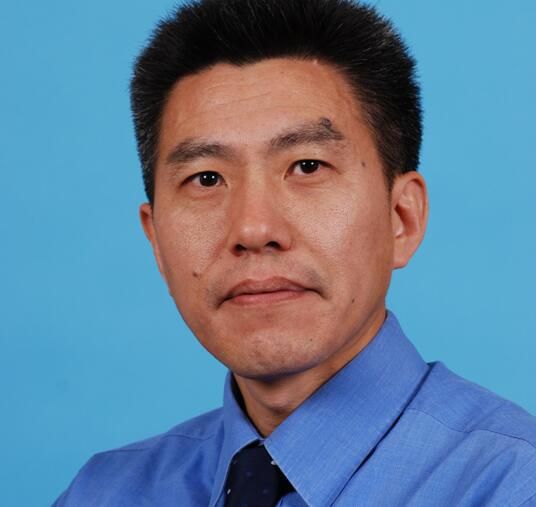
Bio: Zhengtao Ding received B.Eng. degree from Tsinghua University, Beijing, China, and M.Sc. degree in systems and control, and the Ph.D. degree in control systems from the University of Manchester Institute of Science and Technology, Manchester, U.K. After working in Singapore for ten years, he joined the University of Manchester in 2003, where he is currently the Professor of Control Systems and the Head of Control, Robotics and Communication Division. He has authored/co-authored three books, including the book Nonlinear and Adaptive Control Systems (IET, 2013) and has published over 300 research articles. His research interests include nonlinear and adaptive control theory and their applications, more recently network-based control, distributed optimization and distributed learning, with applications to power systems and robotics. Prof. Ding serves/has served as the Editor in Chief of Drones and Autonomous Vehicles, Subject Chef Editor of Nonlinear Control for Frontiers, and Associate Editor for Scientific Reports, IEEE Transactions on Automatic Control, IEEE Transactions on Circuit and Systems II, IEEE Control Systems Letters, Transactions of the Institute of Measurement and Control, Control Theory and Technology, Unmanned Systems and several other journals. He is a member of IEEE Technical Committee on Nonlinear Systems and Control, IEEE Technical Committee on Intelligent Control, and IFAC Technical Committee on Adaptive and Learning Systems. He is a fellow of The Alan Turing Institute, the UK’s national institute for data science and artificial intelligence.
Keynote Speaker 2: Prof. Ke Tang
Title: Learn to Optimize
Abstract: Real-world optimization problems are becoming increasingly complex such that off-the-shelf algorithms could hardly offer satisfactory performance. On the other hand, the prior knowledge and efforts to manually design a new dedicated algorithm may, in many cases, unaffordable. It is thus natural to ask whether it is possible to automate the algorithm design to some extent. This talk tries to provide some preliminary answers to this question. We will start with an introduction to the concept of Learn to Optimize (L2O), i.e., a data-driven paradigm for automated algorithm/solver design. Building blocks and recent progresses of L2O will then be elaborated. Successful case studies and future directions will also be presented.
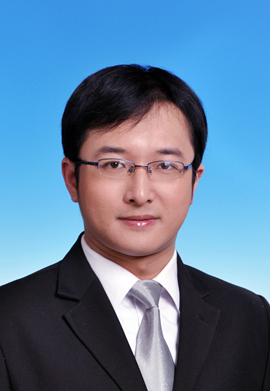
Bio: Ke Tang is a Professor at the Department of Computer Science and Engineering, Southern University of Science and Technology (SUSTech), and a Fellow of IEEE. Before joining SUSTech in January 2018, he was with the School of Computer Science and Technology, University of Science and Technology of China (USTC), first as an Associate Professor (2007-2011) and then as a Professor (2011-2017). His major research interests include evolutionary computation and machine learning, as well as their applications. He has published more than 200 papers, which have received over 13000 Google Scholar citations.
He received the IEEE Computational Intelligence Society Outstanding Early Career Award and the Natural Science Award of Ministry of Education (MOE) of China, and was awarded the Newton Advanced Fellowship (Royal Society) and the Changjiang Professorship (MOE of China). He is an Associate Editor of the IEEE Transactions on Evolutionary Computation and served as a member of Editorial Boards for a few other journals.
Keynote Speaker 3: Prof. Yong Wang
Title: Intelligent learning and optimization for automotive lightweight design
Abstract: In automotive lightweight design, we always face different kinds of optimization problems, which exhibit very complex characteristics, such as expensive, black-box, multiple objectives, multiple constraints, mixed variables, and discontinuous objective functions. Among these complex characteristics, expensive and black-box are the most common. In order to deal with expensive optimization problems, we need to cheap establish surrogate models based on intelligent learning techniques. In addition, we also need intelligent optimization techniques to deal with black-box optimization problems. Moreover, other complex characteristics pose their corresponding challenges to intelligent learning and optimization. In this talk, I will introduce how to design intelligent learning and optimization techniques to deal with different kinds of expensive and black-box optimization problems and their applications in automotive lightweight design.
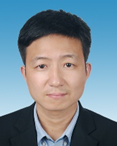
Bio: Yong Wang received the Ph.D. degree in control science and engineering from the Central South University, Changsha, China, in 2011. He is a Professor with the School of Automation, Central South University, Changsha, China. His current research interests include intelligent learning and optimization and their interdisciplinary applications. Dr. Wang is an Associate Editor of IEEE Transactions on Evolutionary Computation and Swarm and Evolutionary Computation. He was a recipient of Cheung Kong Young Scholar by the Ministry of Education, China, in 2018, a Web of Science highly cited researcher in Computer Science in 2017 and 2018, and an Elsevier's Chinese Most Cited Researcher in 2021 and 2022.
Keynote Speaker 4: Prof. Chenguang Yang
Title: Human-like Robot Control Design and Manipulation Skill Learning
Abstract: This talk will introduce our advance in the field of robot skill learning and human-robot shared control. We use control theory to model the control mechanism of motor neurons to assist us developing human-like robot controllers so that the robot can realize variable impedance control to adaptively physically-interact with the changing environment. I will further talk about recent work on learning from demonstration which are generally used to efficiently transfer modularized skills to robots using multi-modal information such as surface electromyography signals and contact forces, enhancing the effectiveness of skill reproduction in different situations. Besides, with the help of deep learning, we design a simulation twin-based method that can transfer the trained skills in simulation to physical robot effectively.

Bio: Chenguang Yang is the leader of Robot Teleoperation Group of Bristol Robotics Laboratory, the Corresponding Co-Chair of the Technical Committee on Collaborative Automation for Flexible Manufacturing (CAFM), IEEE Robotics and Automation Society. He received PhD degree from the National University of Singapore (2010) and performed postdoctoral research at Imperial College London. He is a recipient of the prestigious IEEE Transactions on Robotics Best Paper Award (2012) and IEEE Transactions on Neural Networks and Learning Systems Outstanding Paper Award (2022) as lead authors. He has been awarded EPSRC Innovation Fellowship and EU FP-7 Marie Curie International Incoming Fellowship. He is a Fellow of Institution of Mechanical Engineers (IMechE), Institution of Engineering and Technology (IET), British Computer Society (BCS) and Higher Education Academy (HEA). He has served as Associate Editor of a number of leading international journals including IEEE Transactions on Robotics. He is an elected Member-at-Large of the Board of Governors with IEEE Systems, Man, and Cybernetics Society (SMC), and an AdCom member with IEEE Industrial Electronics Society (IES), 2023-2025.
Keynote Speaker 5: Prof. Hiroshi Nakajima
Title: Kinds of Intelligence
Abstract: There are many kinds of intelligent systems and services found in our daily life. Recently, newly named X-Techs are used in various domains, i.e., Healthcare Tech, FinTech, Ed Tech, HR Tech, Factory Tech Traffic Tech, and many. The systems and services integrate various types of technologies with “intelligence”. Even though it would be hard to define “intelligence”, it could be classified. Some theories of intelligence have been founded as the ideas of taxis from psychology area such as theory of multiple intelligence, two-factor theory of intelligence, structure of intellect theory, and so forth. In the talk, novel classification will be introduced by employing the idea of intelligence sources. We could extract different kinds of intelligence from the different sources such as textbook, human, data and nature. Each intelligence source has the interesting feature. Textbook intelligence has the nature of generality, human one provides authority, data one takes care of individuality, and nature one finds universality. Explanation of some applications will follow the brief introduction to kinds of intelligence.
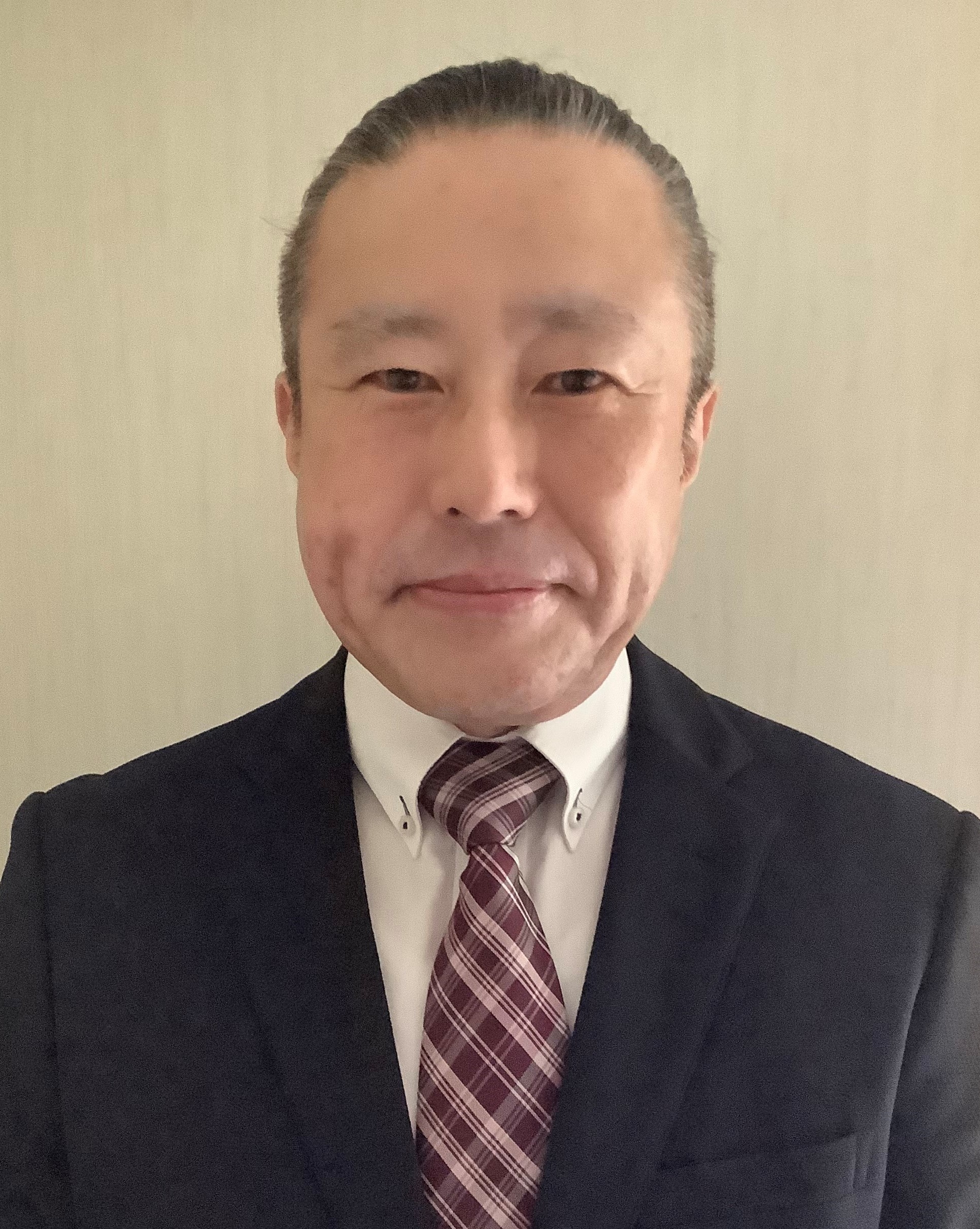
Bio: Hiroshi Nakajima received the B.Eng. degree in System Engineering from Kobe University, Japan, in 1985, and Ph.D. degree in Systems Information Science from Kumamoto University, Japan, in 2004. He is working as Distinguished Specialist of Technology at Omron Corporation and Guest Professor at Kyushu Institute of Technology. He has also served as the president of Japan Society for Fuzzy Theory and Intelligent Informatics. He is a member of IEEE SMC, ACM, SOFT, JSAI, IPSJ, and JSKE. He received the best paper award from Interaction’99 in 1999, the best author award from Information Processing Society of Japan in 2000, the Industrial Outstanding Application Award from International Fuzzy Systems Association in 2007, the best paper award from Japan Society for Fuzzy Theory and Intelligent Informatics in 2009, Biomedical Wellness Award from SPIE in 2011, and the new technology development award from Japan Society for Medical and Biological Engineering.
Keynote Speaker 6: Prof. Takeshi Ikenaga
Title: Artificial brain-vision computer for creating seamless interactive applications between real and virtual worlds
Abstract: In a situation where all human activities are frequently carried out on a global scale, there is a limit to what can be done only in real space. So, an environment that can seamlessly merge the real and virtual worlds is highly expected. To achieve this, the following three are important: 1) Ultra-high-definition videos that exceed the resolution of the human retina, 2) Ultra-realistic content where the difference from the real cannot be recognized, and 3) Ultra-low delay that humans do not perceive. As for the ultra-high-definition video, advances in video compression technology have made it possible to easily use 8K or 360-degree video. As for the ultra-realistic content, technologies such as deep-learning based generated AI images that are indistinguishable from the real are also being developed. On the other hand, research efforts focused on the ultra-low delay processing are still limited, and many breakthroughs are expected. This presentation introduces our proposed “Artificial Brain-vision Computer”. The human brain consists of the cerebrum which processes complex tasks and deep judgments, and the cerebellum which is capable of rather simple but instantaneous processing. The development of deep learning has expanded the possibilities of the cerebrum, but in order to create a whole brain-vision computer, it is essential to devise new algorithms and architecture that play the role of the cerebellum. While introducing our various examples of both rule-based and learning-based 1ms delay vision processing systems, the key technologies and future direction are explained.
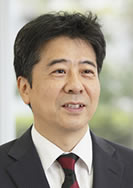
Bio: Takeshi Ikenaga received the B.E. and M.E. degrees in electrical engineering and the Ph.D. degree in information computer science from Waseda University, Tokyo, Japan, in 1988, 1990, and 2002, respectively. He joined the LSI Laboratories, Nippon Telegraph and Telephone Corporation (NTT), in 1990, where he had been undertaking research on the design and test methodologies for high performance ASICs, a real-time MPEG2 encoder chip set, and a highly parallel LSI design for image understanding processing. He is currently a professor in the integrated system field with the Graduate School of Information, Production and Systems, Waseda University. His current interests are image and video processing systems, which covers video compression (e.g., VVC and SCC), video filter (e.g., super resolution and high-dynamic range imaging), and video recognition (e.g., sport analysis, human / object pose estimation, ultra-low delay vision systems).
Keynote Speaker 7: Prof. Honghai Liu
Title: Explore functional corticomuscular coupled information for medical devices and systems
Abstract: Functional corticomuscular coupled information plays a crucial role in human motion science and applications that requires joint multidisciplinary efforts such as brain science and rehabilitation. This talk attempts to present the past, current and future of funcaitonal corticomuscular information interaction and its role in human centred medical systems. One of the problems is that majority of motor performance is assessed by subjective qualitative assessments based on individual movement protocols. It is evident that there is no unified standardized motor function metrics technology, restricting a wide spectrum of applicatons such as stroke rehabilitation. This talk presents the reseach outcomes of the lab led by the speaker with a goal of developing a metric framework to measure brain-body interaction information. The talk is concluded with research directions and open discussions.
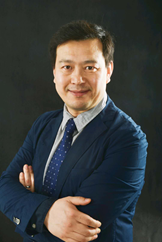
Bio: Honghai Liu received his Ph.D from King’s College, University London, UK. He is a Chair Professor at Haribin Institue of Technology, Shenzhen, China. He previously held research appointments at King’s College London, University of Aberdeen, University of Portsmouth and project leader appointments in large-scale industrial control and system integration industry. He is interested in sensing and understanding for medical systems and applications with an emphasis on approaches that could make contribution to the intelligent connection of perception to action using contextual information. He has authored/co-authored more than 200 per-reviewed journals and conference papers. He is Member of Europe Academy of Sciences, IEEE Fellow .
Keynote Speaker 8: Prof. Minyi Huang
Title: Mean Field Games for engineering
Abstract: Large-population dynamic non-cooperative decision problems are ubiquitous. They arise in a wide range of backgrounds including networks, electric vehicle charging control, economics and social sciences, finance, epidemic control, cyber-security, among others.
To analyze and design strategies in such systems, one must confront huge complexity resulting from high dimensionality. In this context, mean field game theory (Huang, Caines, Malhame (2003, 2006); Lasry and Lions (2006)) has been developed for dynamic non-cooperative games involving a large number of agents, where each agent interacts with the population average effect. This fundamental theory provides a powerful machinery to overcome the curse of dimensionality, and has led to wide engineering applications in recent years. This talk will explain how the theory of MFGs was initially developed based on ideas from statistical physics, and how to identify potential engineering scenarios where the methodologies of MGFs may be applied. Some accessible mathematical techniques will be described. If time permits, we will introduce related modeling extensions such as cooperative agents, major players and leadership, interaction of agents over a dense network, learning with limited model information, etc.
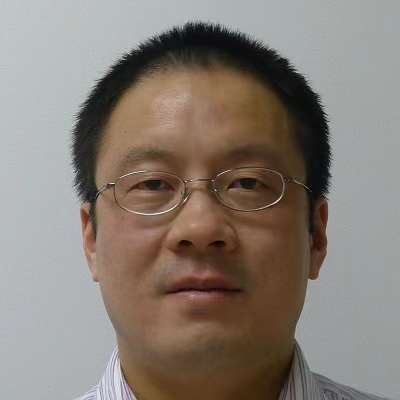
Bio: Minyi Huang received the B.Sc. degree from Shandong University, Jinan, Shandong, China, in 1995, the M.Sc. degree from the Institute of Systems Science, Chinese Academy of Sciences, Beijing, in 1998, and the Ph.D. degree from the Department of Electrical and Computer Engineering, McGill University, Montreal, Canada, in 2003, all in systems and control.
He was a Research Fellow first in the Department of Electrical and Electronic Engineering, the University of Melbourne, Melbourne, Australia, from February 2004 to March 2006, and then in the Department of Information Engineering, Research School of Information Sciences and Engineering, the Australian National University, Canberra, from April 2006 to June 2007. In 2007, he joined the School of Mathematics and Statistics, Carleton University, Ottawa, Canada, where he is now a Professor. His research interests include mean field games and mean field control, multi-agent control and computation in distributed networks with applications.
Keynote Speaker 9: Prof. Jianwei Zhang
Title: Robust robot cognition and control driven by models and crossmodal learning
Abstract: Robot systems are needed to solve real-world challenges by combining data-based machine learning with cognitive, kinematic, dynamic as well as physical models of cognitive abilities in intelligent systems. There has been substantial progress in crossmodal learning deep neural networks and LLMs in terms of data-driven benchmarking. However, such data-driven systems are computationally very costly and not yet interpretable, while most model-based approaches are not robust in an unstructured, dynamic, and changing world. My talk will first introduce concepts of cognitive systems that allow a robot to better understand multimodal scenarios by integrating knowledge and learning and then the necessary modules to enhance the robot intelligence level. Then I will explain how a robot can consolidate its model as a result of learning from experiences; and how such cross-modal learning methods can be realized in intelligent robots. In the end, I will demonstrate several novel robot systems with human-robot interaction, robust walking, and dexterous manipulation skills in potential service applications.
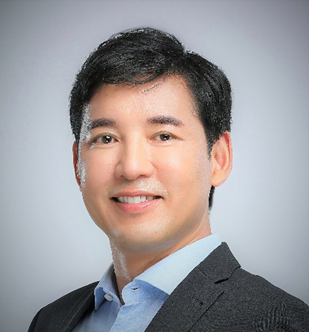
Bio: Jianwei Zhang is professor and Director of Technical Aspects of Multimodal Systems, Department of Informatics, University of Hamburg Germany. He is Academician of the German National Academy of Engineering Sciences and the Academy of Sciences and Humanities in Hamburg Germany. He is Distinguished Visiting Professor of Tsinghua University. He received both his Bachelor of Engineering (1986, Computer Control, with distinction) and Master of Engineering (1989, AI) at the Department of Computer Science of Tsinghua University, Beijing, China, and his PhD (1994, Robotics) at the Institute of Real-Time Computer Systems and Robotics, Department of Computer Science, University of Karlsruhe, Germany. Jianwei Zhang´s research interests include multimodal information (visual, auditory, tactile, etc.) processing; cognitive sensor fusion for robot perception; real-time learning algorithms; modelling of sensory-motor control tasks; natural human-robot interaction; learning and control of robot grasping and in-hand manipulation; experience-based robot learning; bi-manual robot assembly of 3D aggregates; mobile manipulation service robots, etc. In these areas, he has published over 500 journal and conference papers, and holds over 50 patents of robot mechatronic design, novel robot arms and end-effectors, modular robots, etc. He is the General Chair of IEEE MFI (Multisensor Fusion and Integration) 2012, IEEE/RSJ IROS (Intelligent Robots and Systems) 2015, and HCR (Human-Centred Robotics) 2018, and Associated VP of IEEE Robotics Automation Society CAB, etc. He is the coordinator of the DFG/NSFC Transregional Collaborative Research Centre SFB/TRR169 “Crossmodal Learning: Adaptivity, Prediction and Interaction” since 2015. He also leads several EU robotics projects, including the RACE (Robustness by Autonomous Competence Enhancement) Project which was the first to apply high-level learning, planning and reasoning AI methods to service robots. He has received multiple best paper awards at several major robotic conferences.
Keynote Speaker 10: Prof. Long Wang
Title: Feedback Mechanisms, Aspiration Dynamics, and the New Paradigm of Collective Games
Abstract: Evolutionary game dynamics on complex networks consist of three components: games, network structures, and strategy updating rules. Games define the set of individual strategies and the mapping from strategy profiles to payoffs; network structures indicate who can interact with whom; strategy updating rules specify how individuals use their own and social information to determine their future strategies. As is well known, the evolutionary outcomes of such feedback dynamical systems induced by imitation-based update rules are sensitive to model characteristics, such as network structures and ways of imitation. Consequently, it is often difficult to generalize conclusions under imitation-based update rules across different models (Ohtsuki, et al. Nature, 2006;Allen, et al. Nature, 2017). By contrast, self-evaluation-based update rules are shown to generate invariant evolutionary outcomes on both complete and regular graphs. In this talk, I will introduce our recent work on evolutionary dynamics under self-evaluation-based update rules (namely, aspiration dynamics) over arbitrary weighted networks (Zhou, Wu, Du, and Wang. Nature Communications, 2021). We prove that under mild conditions, aspiration dynamics generate invariant evolutionary outcomes for any type of weighted networks, any distribution of aspiration values, and for individualized ways of self-evaluation. In other words, aspiration dynamics generate robust predictions for heterogeneous feedback systems. Our theoretical derivation and numerical simulations reveal the intrinsic difference between imitative and aspiration dynamics, highlighting the advantage of generating robust predictions under aspiration dynamics.
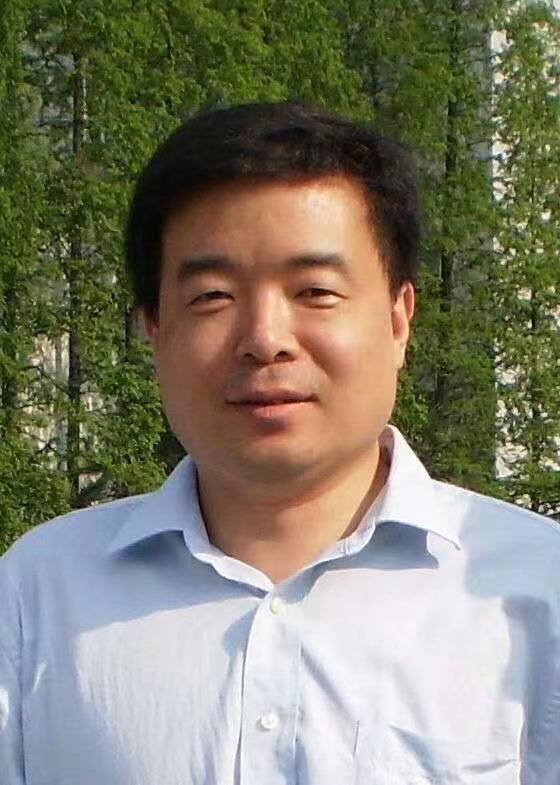
Bio: Long Wang was born in Xi’an, China. He received the B.E. degree from Tsinghua University, Beijing, in 1986, and the Ph.D. degree from Peking University, Beijing, in 1992, both in dynamics and control.
He has held research positions at the University of Toronto, Canada, and the German Aerospace Center, Munich, Germany. He is currently the Cheung Kong Chair Professor of Dynamics and Control, and the Director of Center for Systems and Control of Peking University. His research interests include complex networked systems, evolutionary game dynamics, artificial intelligence, and bio-mimetic robotics.